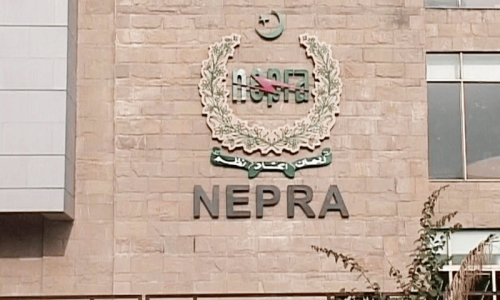ISLAMABAD: Legal loopholes in the Mumbai attacks case led to the grant of bail to Zakiur Rehman Lakhvi, the alleged mastermind of the terror attacks, the Anti-Terrorism Court (ATC) Islamabad stated in its written order.
The order added that weak evidence, the registration of the FIR invoking irrelevant sections against the suspect, the ‘never-ending’ trial and hearsay evidence went in favour of the accused.
Lakhvi was arrested by the Federal Investigation Agency (FIA) in February 2009 on the basis of the confessional statement of the lone surviving attacker Ajmal Kasab and detained at the Adiala Jail.
Also read: ATC approves bail of Zakiur Rehman Lakhvi in Mumbai attacks case
According to the charge-sheet issued on November 25, 2009, Lakhvi, a resident of Renala Khurd of Okara, was the alleged commander of the outlawed Lashkar-i-Tayyaba (LeT) as well as the mastermind of the Mumbai attacks.
It alleged that Lakhvi received weapon training from different centres and then trained other militants of LeT.
He was also facing the charges of imparting training and giving instructions to the 10 terrorists who carried out the attacks between November 26 and 28, 2008, leaving 166 people dead.
On December 18, ATC Judge Syed Kausar Abbas Zaidi granted bail to Lakhvi. However, he is still detained in the jail under the Maintenance of Public Order ordinance.
Weak evidence
The Mumbai attacks case witnessed a twist in May 2014 when Mudassir Lakhvi, the headmaster of a government school in Okara where Ajmal Kasab studied, claimed that Kasab was still alive.
The testimony of Mudassir, who was produced as a prosecution witness by the FIA, exposed the poor coordination of the agency with the witness.
The FIA also produced some other witnesses who had no ‘direct’ knowledge of the offence and just narrated the story of the incident and tried to establish the link of the accused persons with the Mumbai attacks.
The main evidence on the basis of which Lakhvi was implicated in the case was the confessional statement of Ajmal Kasab, who was executed in an Indian jail on November 21, 2012.
The counsel for the accused pointed out that the confessional statement of Kasab could not be admissible after his execution and the statement of the headmaster. The prosecution witness, headmaster Lakhvi, testified before the court that “a person namely Mohammad Ajmal, son of Mohammad Amir, a resident of Farid Kot is alive and available in his village.”
The statement of the witness damaged the prosecution case and subsequently the prosecutor requested the court to declare the headmaster as a ‘hostile witness’ and treat his statement as ‘irrelevant’.
Likewise, the ATC judge noted that the evidence against Lakhvi was based on the statements of the officials of the Crime Investigation Department (CID) which apparently were ‘insufficient’ to refuse the grant of bail to the accused. The court observed that the accused was charged on the basis of ‘hearsay’ evidence.
The court order stated that “the statements of five CID inspectors were held to be relevant against the accused/petitioner. “These prosecution witnesses have now been examined before the court and it was revealed from their statements that they had charged the accused/petitioner on the basis of hearsay. It is also an admitted fact that not a single word has been uttered by PW-42 namely Mohammad Mumtaz against the present accused/petitioner namely Zakiur Rehman Lakhvi.”
Flaws in the investigation: The registration of the FIR and the insertion of different sections of the law also benefited Lakhvi. The FIR was registered about three months after the incident.
The order issued for the release of Lakhvi stated: “as per the contents of the FIR, the occurrence took place in November 2008 whereas the report was lodged on February 2, 2009.” In the criminal proceedings, the delay in lodging an FIR of an offence always benefits the accused.
Tariq Mehmood Jahangiri, a former deputy attorney general, told Dawn that though the ‘Limitation Act’ did not apply in the criminal matters and an FIR against the occurrence of an offence can be registered after several months, the delay in lodging the FIR always favoured the accused person regardless the nature of the crime.
Furthermore, the prosecution inserted an offence against the accused which was non-existence in February 2009 when the FIR was registered against Lakhvi. The order said an amendment to section 6-B of ATA was incorporated in the FIR against the accused in 2011, which stated that threats and acts of terrorism against a foreign government or population or an international organisation would also fall in the ATA.
Raja Rizwan Abbasi, the counsel for Lakhvi, said, “the terror incident took place in 2008 and it is yet to be seen whether the provision of ATA was applicable to the case or not.” He said since the amendment did not involve any retrospective effect, it cannot affect the accused.
The never-ending trial: The trial of the accused persons in the Mumbai attacks case could not be concluded despite the laps of six years. During this period, seven judges were changed. So far, the FIA has submitted five challans against the accused persons and produced about 1/3 of the total witnesses in the court.
The judge also reproduced the arguments of Lakhvi’s counsel regarding the delay in the trial. The order states: “during the last six years only around 50 prosecution witnesses have been examined before the court whereas more than 100 are still to be examined which may consume another 10 years.” As per sub-section 4-C of section 21-D of the ATA, the court shall have to regard the time which the accused person has already spent in custody and the time which is likely to be spent in custody if not admitted to bail.
In the concluding paragraph of the order, the judge, however, stated that these observations were “tentative in nature and shall not affect the trial or its fate in future.”
Published in Dawn, December 27th, 2014












































